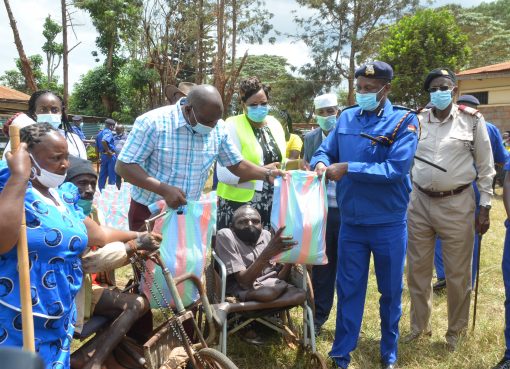Members of the public have been cautioned against giving false information when applying for legal authority to administer the property of persons who die without valid wills.
An advocate in Kiambu, Emmanuel Eredi confessed that cases of giving false information, while applying for a grant of transfer have been numerous and advised affected families to be sincere in giving accurate information after their parents pass on.
Eredi said that in most cases sons of deceased persons leave out names of their sisters, while presenting the list of those entitled to inherit the property of their parents before court.
However, he stated that the law also awards daughters the right to inherit a share of their parents’ property just like sons, hence no gender should be discriminated upon as a constitutional requirement.
“It’s a criminal offence to lie before a court of law and if it is discovered that false information was given, the offender can serve a jail term or be entitled to pay a fine. Also, the court will terminate the whole process and order a fresh start, which will end up consuming more time and money,” said Eredi.
Another advocate, Rhoda Maina while explaining to the members of the public the succession procedures noted that in cases where the inheritance was already approved by the court and thereafter objections arose, said the grant can be revoked and an oral hearing scheduled to resolve the matter.
Maina clarified that when the information suspected to be untrue is detected, the court may appoint new administrators to spearhead the process afresh, as the petitioner discloses how he/she stands to be a beneficiary.
As per procedures in Succession Steps (2009), a booklet which was given to members of the public who sought legal information during the awareness week, any person who makes false statements in the process of applying for letters of grant is guilty of an offence that attracts a fine not exceeding Sh10, 000 Kenya or a term of imprisonment for up to one year.
The booklet also states that the event where someone dies without having written a valid will, an application for letters of administration shall be done. This arises when either a person dies without a will or the will left by the deceased is held to be invalid by the probate court.
Thereafter, the respective documents required are an affidavit of justification for the proposed administrator, guarantee of personal sureties, copy of death certificate and at least two applicants are needed because of continuing trust for minors, as well as applicants’ identity cards.
Additionally, a letter from the area chief listing all the beneficiaries to the property, their ages and relationship with the deceased, identity cards and finally proof of ownership of the property of the deceased, for instance title deeds, logbooks, share certificates and others.
It also states that the number of persons applying for letters of administration should not exceed 4. Further, after an application has been filled with or without a will, annex one must publish a notice in the Kenya gazette and wait for 30 days to allow for any objections. Also, any person with an objection must clearly state them in court for determination.
In the event that minors are beneficiaries, the booklet states that the application for letters of administration shall be made by not more than 2 adult relatives appointed by court to hold the property on behalf of the minors until they become adults, unless the administrator is the public trustee who is legally allowed to be sole administrator.
The one week legal awareness week which was officially launched Tuesday by Kiambu Chief Magistrate (CM), Patriciah Gichohi ended Friday, with benefits to members of the public who flocked the tents within the law courts to benefit from free legal services by practicing advocates.
Similar forums were also held in Milimani Law Courts, Kibera Law Courts, Makadara Law Courts and the Supreme Court, including all LSK branches countrywide during the same period.
By Lydia Shiloya/Robert Muiruri



